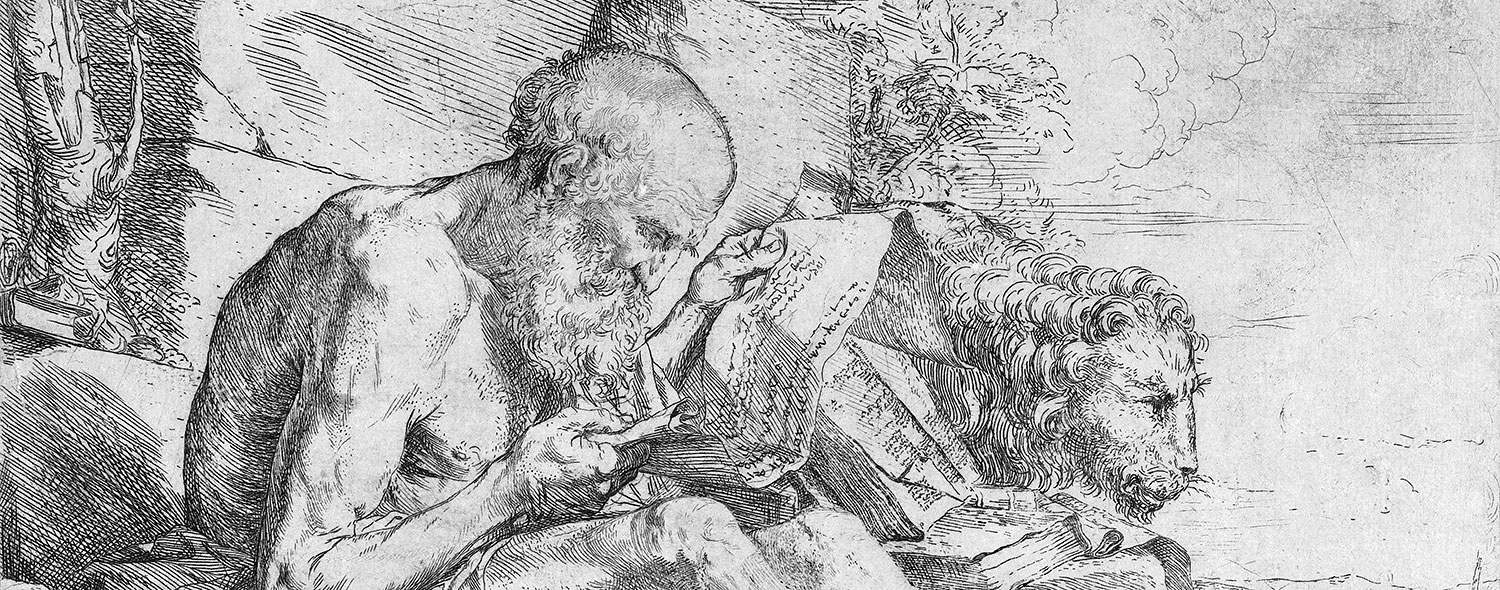wishful thinking

Saint Jerome Reading, (Jusepe de Ribera [called Lo Spagnoletto], ca. 1624)
Proteus: Upon some book I love I’ll pray for thee.
Valentine: That’s on some shallow story of deep love…
The chair from which I work is by a window – or a set of windows, rather – overlooking a street and some trees and, depending on how much one cares to twist around, a church and its parking lot in the process of refurbishment to suit the tastes of the muscular young congregation driving in from the suburbs. If, some years ago, you had asked me what I wanted of life, I would have said a chair, a window, and time to read. This largely describes my life at the moment, and it is not quite what I imagined. Reading is part of my employment – it pays for the windows and the chair and the other apparatus of comfort; generally I read articles related to medicine or social science that possess a structure more rigid and formulaic than epic, with more tedious epithets (tell me of the trials, muse, double blinded, crossover and mix methods).
After threading my way through this labyrinth each day, I find I have little energy for reading that requires any sort of thinking. Occasionally I do manage to read a book or two, but usually I fritter away my free time consuming works of a less nutritious sort. These books lack any sort of narrative complexity and always place their moments of rote significance in chapters with prime numbers (turn to chapter 11 for the murder, chapter 17 for improbable fornication, or chapter 29 for the unexpected denouement). I pursue these books because there is never any doubt as to what is happening – when a character is, ahem, sacrificed, this action moves the plot towards the villain’s end, be that escape, capture, vindication, or death. Even in books that attempt ‘moral complexity’ (i.e., the villain is wealthy and attractive or the impecunious character of unconventional appearance and minor social vices turns out to have been falsely accused), there is no enigma, only misdirection.
I try to make up for the deficiency of my reading by requesting books on interlibrary loan that have appeared in the papers I have edited – thus a translation of the Confucian Four Books for Women (not due until September) is gathering dust next to my chair, as I cannot tell if its peculiarities are original or artifacts of the translator, and so, too, did I linger over a shorter Hegel for longer than was truly necessary for anyone’s health or happiness. I am hoping, as I become better acquainted with the prosody of my work, that I will have more brain left for my leisure. I will continue to hope – and will perhaps be more careful in the phrasing of my wishes.
